Busted Plow
Busted Plow is a 20-acre homestead on the rugged shoreline of Cobscook Bay in far eastern coastal Maine—Way Downeast. Here, salt marsh meets mixed forest, old farm fields, and tidal pools teeming with life. The land holds echoes of its past as a working farm, but its future is rooted in regeneration.
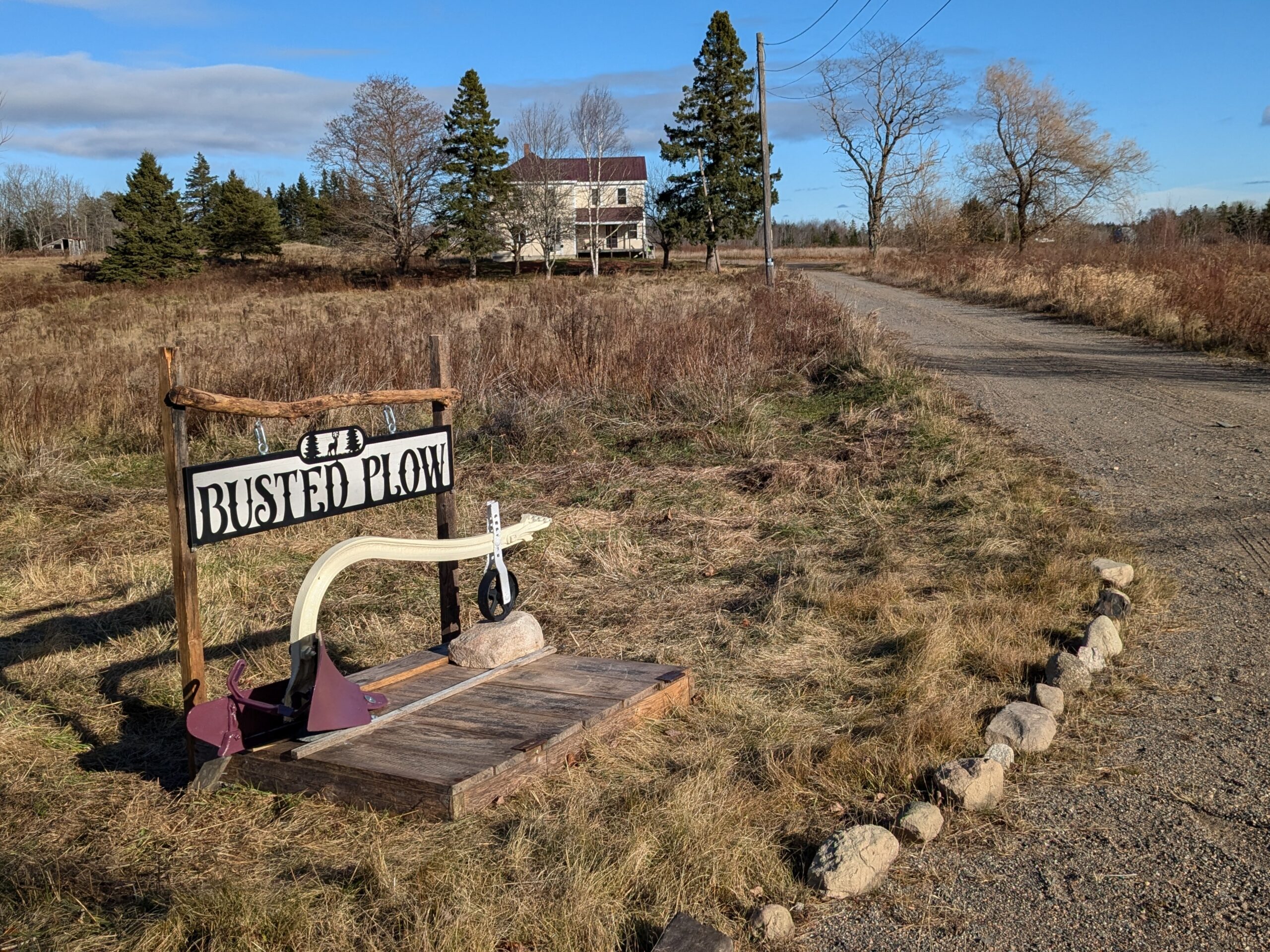
A Permaculture Preserve
Busted Plow is not a traditional farm, nor is it left to wild abandonment. It’s an evolving permaculture preserve, guided by the principles of observation, integration, and care. The goal is to support native biodiversity while producing sustainable, cruelty-free food for humans and wildlife alike.
This approach means restoring and stewarding the land through minimal disturbance, letting native grasses, wildflowers, and shrubs regenerate across open meadows and woodland edges. It means fostering habitats that benefit pollinators, amphibians, birds, and countless small creatures that call this place home. Management decisions are shaped by what already wants to grow here, by what supports the bees, the frogs, the birds, and the unseen microbial life in the soil.
In Partnership with the Land
Land is not shaped to fit human agendas — instead, patterns in soil, plant life, and wildlife movement are observed and honored. Natural succession and native tendencies set the course.
Respect for All Living Things
The guiding ethic at Busted Plow is veganism as land care. That means no animal exploitation, no hunting, and no input from livestock. Plants are gathered in ways that leave the rest thriving. The aim is to live in reciprocity with the land.
Rooted in Permanence
Food-bearing trees, shrubs, and perennials form the backbone of a system that supports wildlife, improves soil health, and offer sustainable yields—embodying the permaculture principle of creating lasting, resilient abundance.
Low-Impact, High-Integrity
Management avoids machinery, tilling, and chemicals. No synthetic fertilizers, pesticides, or herbicides are used—only hand tools, mulch, and seasonal timing to support regeneration with minimal disturbance.
Diversity is Resilience
No monocultures, no tidy rows. A thriving system is messy, multilayered, and abundant in form and function. Biodiversity is the foundation of health, beauty, and adaptation.
Whole-System Thinking
Each habitat—meadow, forest, wetland, and shore—contributes to a connected whole. Edges are valued, and natural cycles of water, nutrients, and energy are respected and reinforced.
A Living Landscape
Busted Plow is a mosaic of habitats—shoreline, woods, meadow, and wetland—each supporting its own web of life.
Care for these habitats extends beyond plants and soil. Clean air, pure water, dark skies, and quiet surroundings are essential to well-being for both people and wildlife. Every effort is made to reduce pollution, conserve resources, and protect the natural sensory landscape.
Shoreline
Intertidal salt marshes, where brackish waters nurture rockweed and marine life.
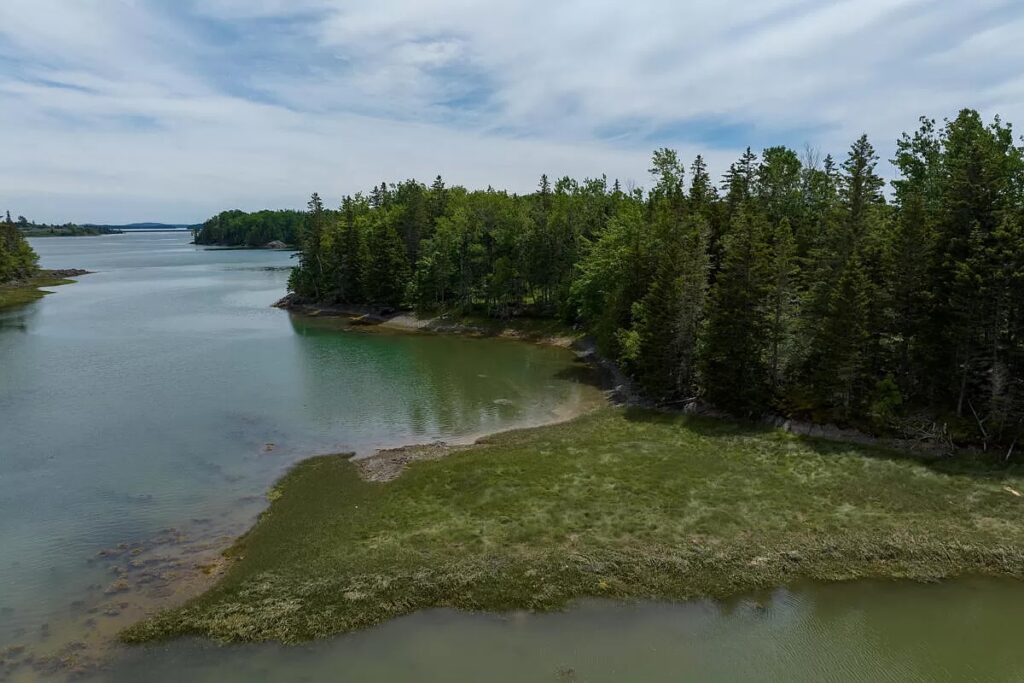
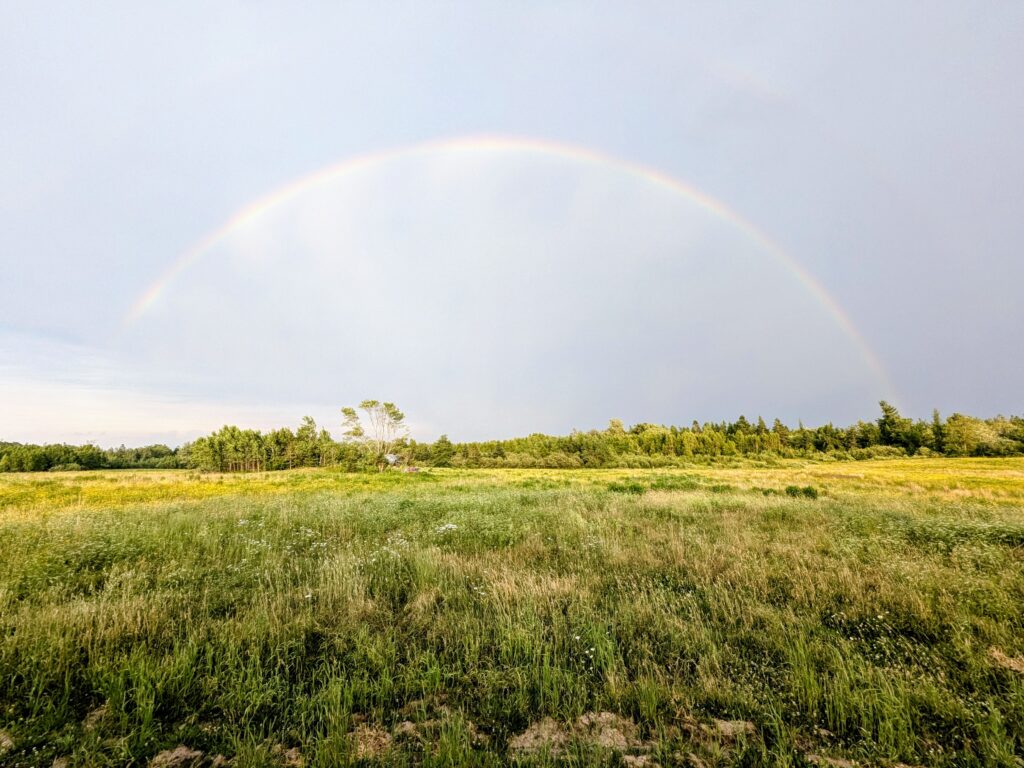
Meadows
Old farm fields, now home to goldenrod, asters, wild roses, and a rising diversity of native flowers and grasses
Woods
Mixed woodlands, rich with the songs of warblers and the footfalls of porcupines.
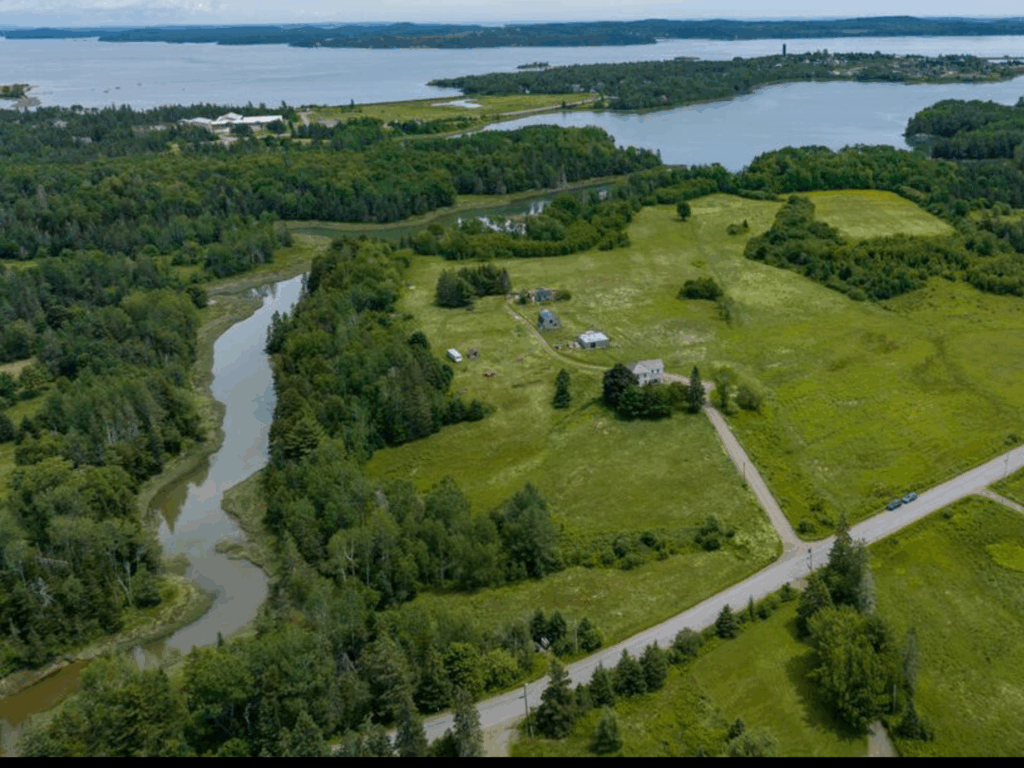
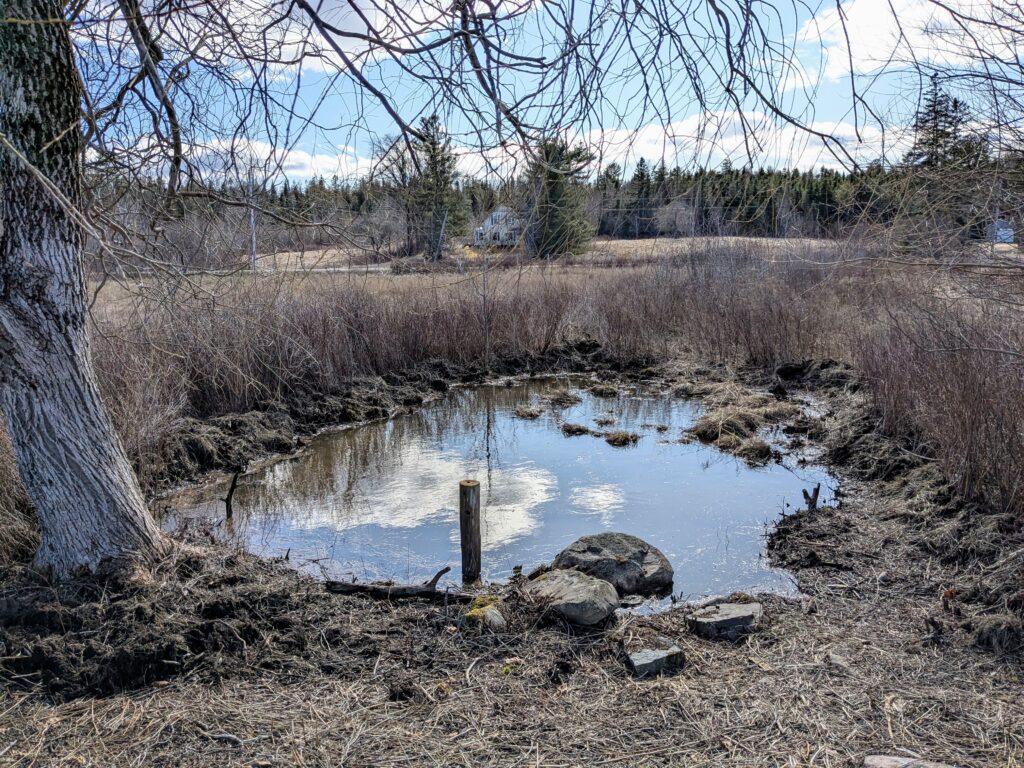
Wetlands
Ephemeral streams and shallow ponds, carefully stewarded to invite amphibians, birds and dragonflies.
Busted Plow is an evolving permaculture preserve, guided by the principles of observation, integration, and care.
Planting the Future
Plans for Busted Plow continue to take root. Future additions will expand both the food-producing potential and the ecological richness of the land. These projects will be grounded in the same core philosophy: grow what belongs, observe what thrives, and share the harvest with the land itself.
Kitchen Garden
Planned for the site of a former pole barn, already cleared and open to sun, the kitchen garden will follow Three Sisters traditions and perennial polycultures to produce vegetables, herbs and legumes in harmony with the land.
Fruit and Berry Orchard
Native fruiting shrubs and trees will support pollinators, birds, and seasonal foraging, enriching the land’s cycles of bloom and renewal.
Greenhouse Conversion
The existing Quonset hut will be transformed into a greenhouse for perennial propagation, early-season seed starting, and long-term support of the garden ecosystem.
Native Nut Orchard
Cold-hardy nut trees and shrubs will offer long-term sustenance for humans and wildlife alike, building soil health and adding vertical diversity to the landscape.
Harvest House with Water Catchment
An old shed will be opened into Harvest House—a grape-covered pergola structure with passive water catchment for the kitchen garden and shaded outdoor workspace to support a variety of seasonal tasks.
Perennial Expansion
Lawn areas will be replaced with native plant beds, and former fields will be maintained as meadows enriched with greater species diversity—strengthening pollinator habitat and deepening seasonal resilience.